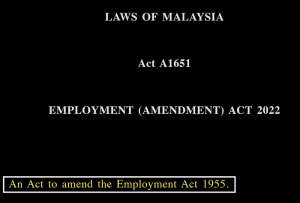Disclaimer: The information in this article should not be construed as legal advice, and we assume no responsibility or liability for any decisions made or actions taken from this article should not be construed as legal advice, and we assume no responsibility or liability for decisions made or actions taken as a result of reading this article.
To calculate overtime, you must know how to ascertain the number of hours worked.
Normal Working Hours

The term “normal working hours” refers to the laws regulating the number of hours an employee can work in a given day, week, month, or year.
As stipulated by the law, employers must pay higher overtime work rates. It varies from country to country, but the Standard working hours around the world are about 40 to 44 hours per week (35 hours per week in France and up to 105 hours per week in North Korean labour camps)
The term “maximum working hours” indicates the maximum number of hours an employee is expected to work per week. The employee is not permitted to work more than the number of hours allowed by law.
Hours of Work, s 60A(9)
In this context, “hours of work” refers to the time during which an employee is at the employer’s disposal and is not free to control his own time and movements.
Limits on Hours of Work, s 60A(1)
Condition 1: more than five continuous hours without a break of at least 30 minutes;
Condition 2: more than 8 hours in one day;
Condition 3: more than 45 hours [Before 1.1.2023: 48 hours (Note 1)] in one week;
Condition 4: over a spread over 10 hours in one day.
Note 1:
- This provision was written at a time [before independence] when the majority of employees in our country were forced to work for six days a week and, as a result, were compelled to work for no more than 8 hours a day at most and could not work more than 48 hours in a week.
- However, according to the Employment (Amendment) Act 2022, an employee cannot work more than 45 hours in a single week starting September 1, 2022.
- Not applicable to the Sabah Labour Ordinance and Sarawak Labour Ordinance; why do I say so?

This is because the Employment (Amendment) Act 2022 is an Act to amend the Employment Act 1955 ONLY.
There are two circumstances in which the conditions outlined above will not be applied
- On a written request from an employer, the Director General can grant the employer permission. [s 69A(1A)]
- in the case of—
- accident, actual or threatened, in or concerning his place of work;
- work, the performance of which is essential to the life of the community
- work essential for the defence or security of Malaysia;
- urgent work to be done to machinery or plant;
- an interruption of work which it was impossible to foresee; or
- work to be performed by employees in any industrial undertaking essential to the economy of Malaysia or any essential service as defined in the Industrial Relations Act 1967
Act A1026
Employment (Amendment) Act 1998 – 1-8-1998
An amendment took effect on August 1, 1998, as proviso (iii) to section 60A(1) of the EA.
This amendment allowed the law to permit that, by agreement between employers and employees, where the number of hours of work on one or more days of the week is less than 8 hours (for example, some employees are required to work a half day on Saturday or some are not even required to work on Saturday), on the remaining days of the week, the restriction of eight hours may be exceeded; nevertheless, no employee may be required to work for more than nine hours in a single day or for more than forty-eight [Effective January 1, 2023: 45] hours in a single week.
Why?
We speculated that this provision accommodates employees who prefer to work a 5-day work week rather than a 6-day work week.
For instance, if employees are not required to clock in on a Saturday, then for the remaining days of the week, the employees will be required to work for more than 8 hours but not more than 9 hours in 1 day.

Flexi Work Arrangement: the government remembers some but not all
The government enacted this law to encourage employers to provide more flexible working arrangements.
To put it another way, after an agreement has been reached between an employee and their employer, the employee has the option of working flexible hours.
Regrettably, the introduced amending law does not consider work hours for this flexible work arrangement.
Illustration

Scenario 1: A 5-day workweek
Depending on the operational requirements of the Firm, your working days and hours will be as follows:
Monday – Friday: 8.00 am – 5.00 pm, Lunch Break: 12.30 pm – 1.30 pm (1 hour)
Saturday: Off Day
Sunday: Rest day
Please note that you may be required to work beyond these working hours because of the demands of your work and position. The working hours and rest days may be changed from time to time as determined by the Firm.

The current employment law allows for Scenario 1 due to the following conditions are met:
- A one-hour lunch break (even though the law requires a lunch break of 30 minutes or more) when working no more than five consecutive hours.
- Najib doesn’t have to work more than 8 hours a day (He is required to work for 8 hours exactly)
- Also, Najib is not required to work more than 45 hours per week (He is only needed to work for a total of 40 hours)
- Najib is entitled to 1 rest day.

Scenario 2: A 6-day workweek
Same facts as in Scenario 1 except that [in brown colour]:
Monday – Friday: 8.00 am – 5.00 pm, Lunch Break: 12.00 pm – 1.00 pm (1 hour)
Saturday: 8.00 am – 1.00 pm
Sunday: Rest day

The current or amended employment laws allow for Scenario 2 due to the following conditions are met:
- A one-hour lunch break (even though the law requires a lunch break of 30 minutes or more) when working no more than five consecutive hours.
- Najib doesn’t have to work more than 8 hours a day, as he is required to work for
- 8 hours from Monday to Friday; and
- 5 hours on Saturday
- Also, Najib is not required to work more than 45 hours weekly.
- He only needed to work for a total of 45 hours.
- Najib is entitled to 1 rest day.

Scenario 3: A 5-day workweek
Same facts as in Scenario 1 except that [in brown colour]:
Monday – Friday: 8.00 am – 6.00 pm, Lunch Break: 12.30 pm – 1.30 pm (1 hour)
Saturday: Off Day
Sunday: Rest day

The current or amended employment laws allow for Scenario 3 due to the following conditions are met:
- A one-hour lunch break (even though the law requires a lunch break of 30 minutes or more) when working no more than five consecutive hours.
- Najib doesn’t have to work more than 8 hours a day.
- But the number of hours of work on one or more days of the week [in this scenario, which is Saturday] is less than 8 hours
- Also, Najib is not required to work more than 45 hours per week.
- He only needed to work for a total of 45 hours.
- Najib is entitled to 1 rest day.

Scenario 4: A 6-day workweek
Same facts as in Scenario 1 except that [in brown colour]:
Monday – Saturday: 8.00 am – 4.30 pm, Lunch Break: 12.00 pm – 1.00 pm (1 hour)
Sunday: Rest day

The current or amended employment laws allow for Scenario 4 due to the following conditions are met:
- A one-hour lunch break (even though the law requires a lunch break of 30 minutes or more) when working no more than five consecutive hours.
- Najib doesn’t have to work more than 8 hours a day.
- Also, Najib is not required to work more than 45 hours per week.
- He only needed to work for a total of 45 hours.
- Najib is entitled to 1 rest day.

Scenario 5: A 6-day workweek
Same facts as in Scenario 1 except that [in brown colour]:
Monday – Saturday: 8.00 am – 3.30 pm, Lunch Break: 3.30 pm – 4.30 pm (1 hour)
Sunday: Rest day

The current or amended employment laws do not allow for Scenario 5 due to the following conditions being met:
- Even Najib doesn’t have to work more than 8 hours a day.
- Also, Najib is not required to work more than 45 hours per week.
- He only needed to work for a total of 45 hours.
- Najib is entitled to 1 rest day.
- BUT
- Najib has to work more than five continuous hours without a break of at least 30 minutes;
Coffee or Tea Refreshment Breaks

The benefits of taking coffee breaks at work
It is well known that drinking coffee can boost performance and memory, hence causing the brain to work more effectively.
Many say that productivity surges during coffee breaks, and fewer mistakes are made due to feeling more attentive.
The most fantastic time for employees to get to know one another and develop friendships is during the coffee breaks provided.
Coffee or Tea Breaks at work
Within five consecutive hours, any break that is less than thirty minutes long will be considered part of the work hours—for example, a 20-minute tea break or two tea breaks of 15 minutes each.
Kesatuan Sekerja Pembuatan Barang Galian Bukan Logam v Malex Industries Bhd
Working Overtime in Malaysia
“Overtime Work” is defined as the number of hours carried out over the regular work hours per day as stated in section 60A(1) of the EA.
This definition of “overtime work” can be found in the EA’s section 60A(3).
- If any work is carried out after the spread over a period of ten hours, the whole period beginning from the time that the said spread over period ends up to the time that the employee ceases work for the day shall be deemed to be overtime.
A simple definition of overtime would be the number of hours worked outside of normal working hours.
Limitation Of Overtime Work
Similarly, there is a cap on the overtime that can be worked.
According to the Employment (Limitation of Overtime Work) Regulations of 1980, the maximum overtime an employee can be required to work in a single calendar month is 104 hours.
This equates to almost four hours every day, on average.
Even though the pay rate should be one and a half times the hourly rate of pay of employees, some companies decided that it was more cost-effective to ask employees to work overtime rather than acquire a new employee.
On the other hand, employers are responsible for remembering that they cannot, under any circumstances, mandate that employees work more than 12 hours in a single day.
Amendments to the Employment Act 1955
A series of explanations of the Amendments to the Employment Act 1955 was previously posted:-
Our website's articles, templates, and material are solely for reference. Although we make every effort to keep the information up to date and accurate, we make no representations or warranties of any kind, either express or implied, regarding the website or the information, articles, templates, or related graphics that are contained on the website in terms of its completeness, accuracy, reliability, suitability, or availability. Any reliance on such information is therefore strictly at your own risk.










